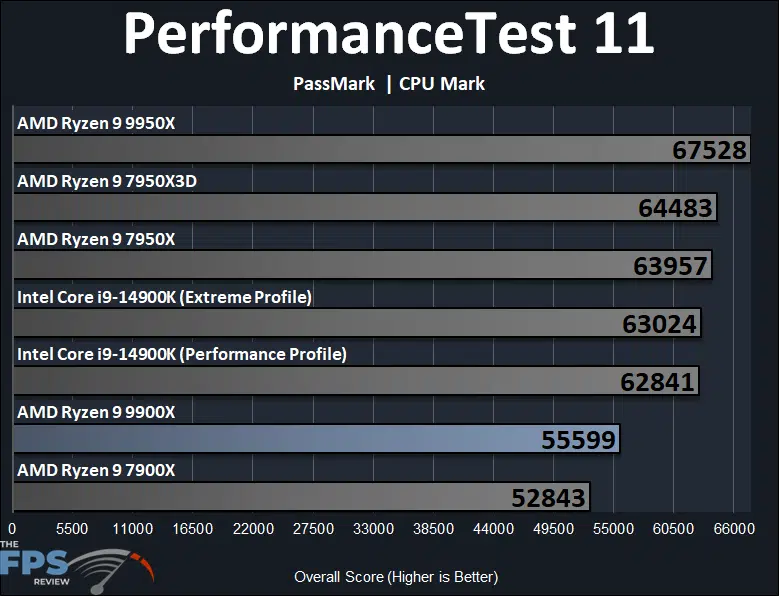Synthetic System Benchmarks
On this page, we will show synthetic benchmarks, some that test a variety of system use-case scenarios, and others that test specific multi-core and single-core/thread workloads to hone in on performance differences. Note that the graphs are arranged from fastest to slowest, and the AMD Ryzen 9 9900X CPU is highlighted. One of the primary goals while reading the performance is to see the difference between the Ryzen 9 9900X and Ryzen 9 7900X. Of course, the competition is included as well and we are showing both the Extreme Profile and Performance Profile BIOS settings. Take note that Core/Thread count differences will affect many results in multi-core/multi-thread testing.
PCMark 10 Express
PCMark 10 Express tests workloads as follows: PCMark 10 Express is a benchmark that focuses on basic work tasks. It is a good choice when tendering for PCs for general office use. The PCMark 10 Express benchmark focuses on the performance needs of a typical office worker. It tests Essentials and Productivity.
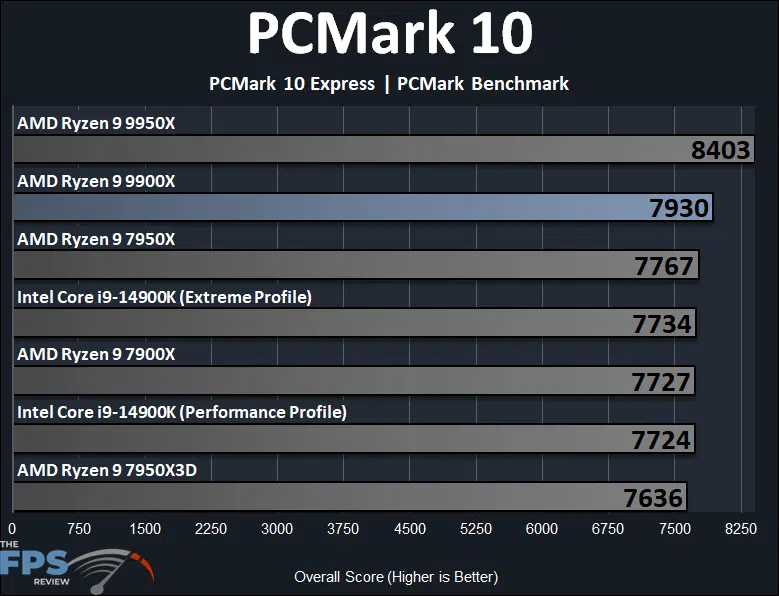
This benchmark focuses mainly on workloads that are more lightly threaded in office applications. Right off the bat, the new 12-core AMD Ryzen 9 9900X is near the top of the graph, with the second-to-most performance at 7930. If we compare it to the previous generation Ryzen 9 7900X, then the AMD Ryzen 9 9900X is a small 3% faster, which is not a big performance difference in this lightly threaded workload. When we compare this to the Intel Core i9-14900K in the Performance Profile, it is at least 3% faster.
Geekbench 6
We are using Geekbench version 6.3.0 for our testing. We will show Multi-Core (nT) and Single-Core (1T) performance in separate graphs.
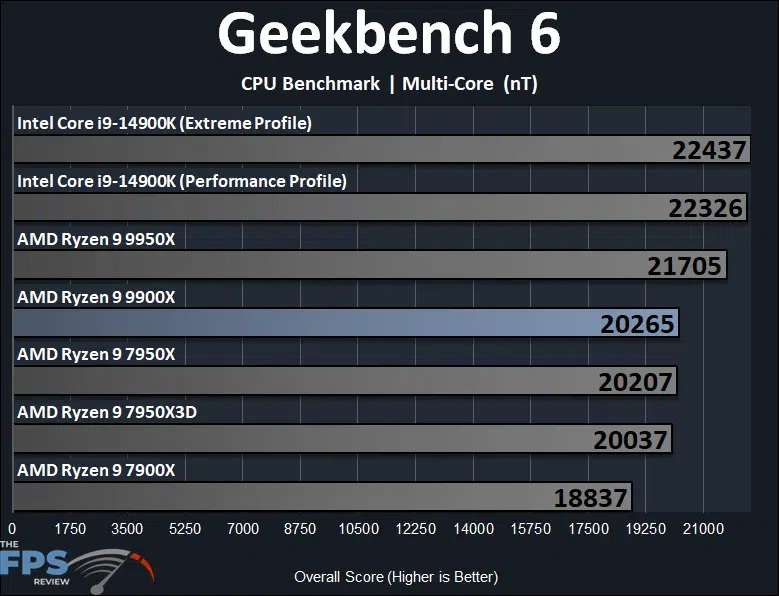
In Geekbench 6’s Multi-Core testing, the AMD Ryzen 9 9900X looks better with an 8% uplift compared to the previous generation Ryzen 9 7900X. In fact, the 12-core AMD Ryzen 9 9900X actually ends up having the same performance on Multi-Core as the 16-core Ryzen 9 7950X from the previous generation! That’s a pretty impressive positioning for the new AMD Ryzen 9 9900X to be in considering it is just 12-cores/24-threads. It is about 9% slower than the Intel Core i9-14900K in Performance Profile, however.
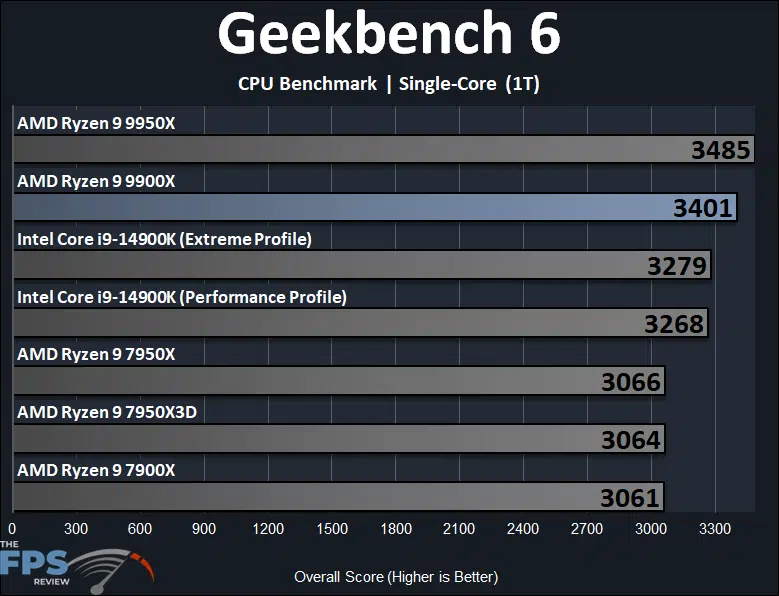
The new AMD Ryzen 9 9900X has a more impressive 11% uplift in Single-Core performance compared to the Ryzen 9 7900X in the previous generation. At this single-core performance uplift, the new AMD Ryzen 9 9900X is actually also 11% faster than the Ryzen 9 7950X. It also outperforms the Intel Core i9-14900K by 4%.
3DMark CPU Profile
We are testing 3DMark’s CPU Profile which tests Max Thread performance and Single Thread performance, we are reporting both on separate graphs.
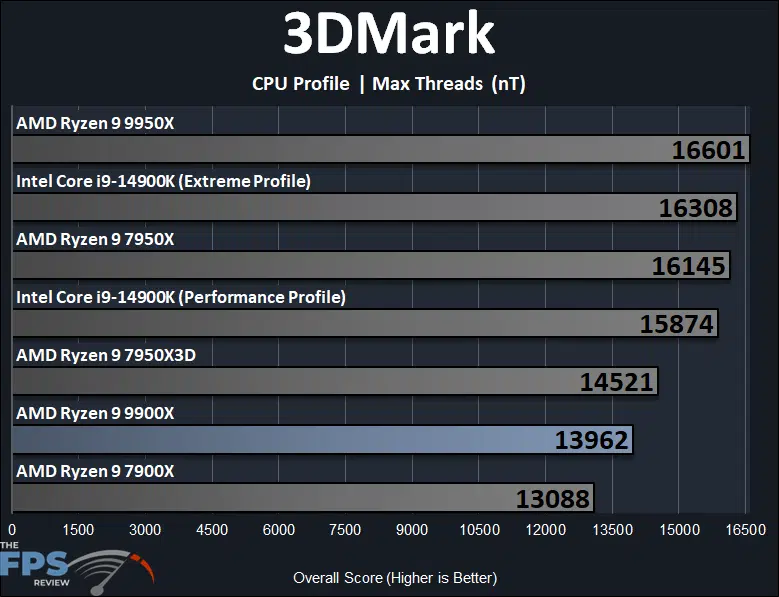
The 3DMark Max Threads test shows that the AMD Ryzen 9 9900X provides a 7% performance uplift compared to the previous generation AMD Ryzen 9 7900X. This puts it under the other CPUs, however, due to the 12-core nature. It ends up being 12% slower than the Intel Core i9-14900K in the Performance Profile.
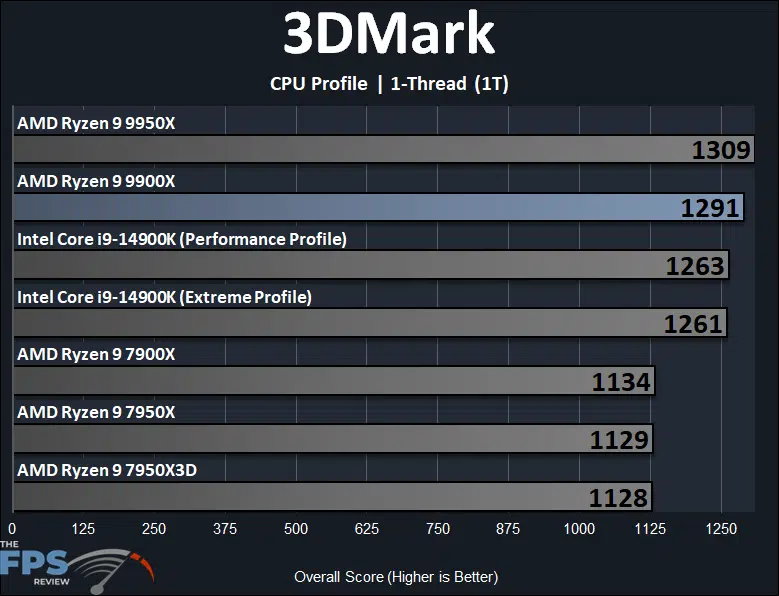
Once again, though, in the 1-thread performance, the new AMD Ryzen 9 9900X is doing very well at 14% better performance than the previous generation Ryzen 9 7900X. Therefore, at this performance level, it actually ends up also being faster than the Ryzen 9 7950X in 1-thread performance. It’s also 2% faster than the Intel Core i9-14900K.

